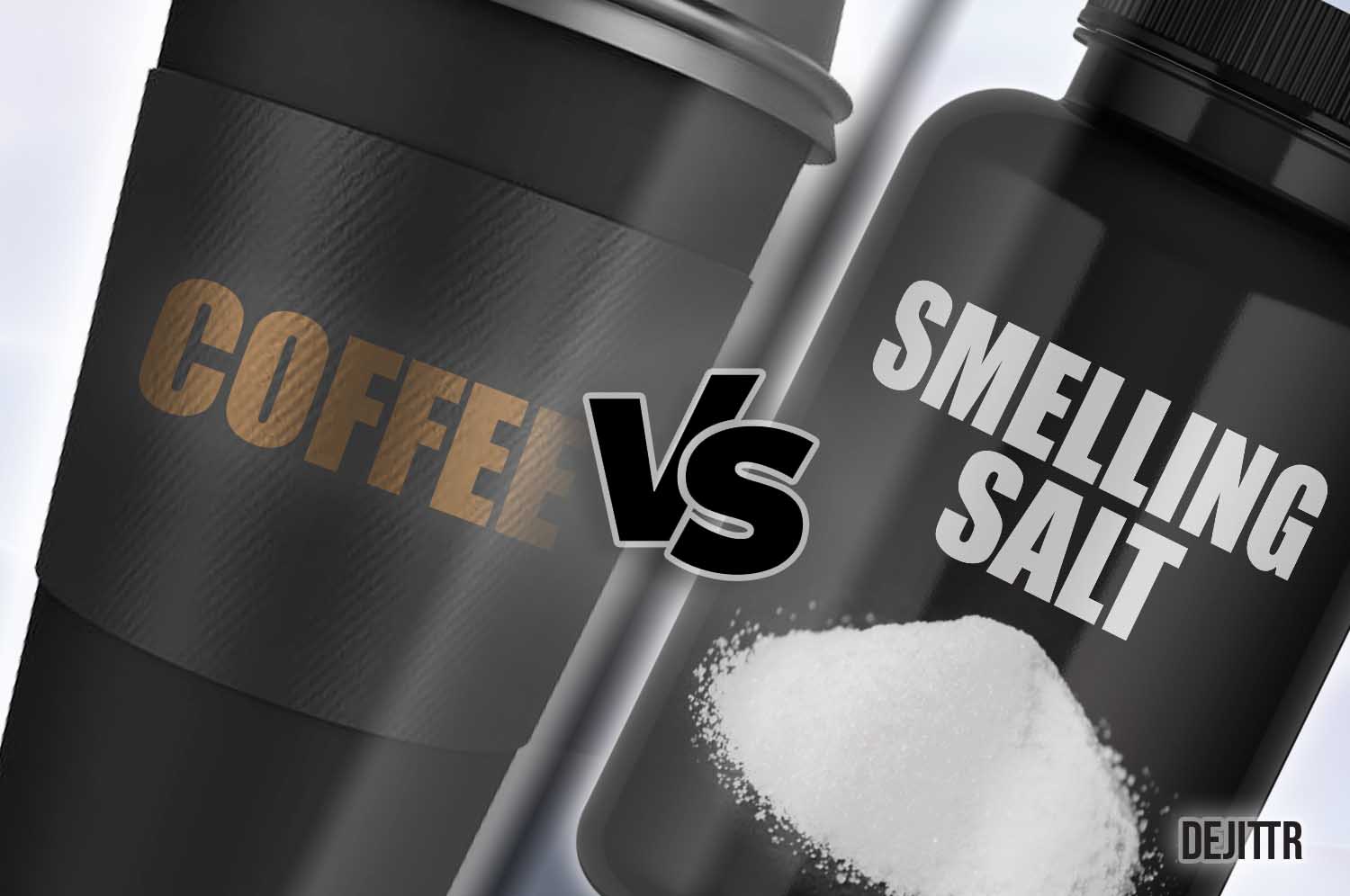Smelling salts were used in boxing for centuries as a means to revive fighters who were knocked out.
However, in the 1950s and 1960s, the use of smelling salts in boxing began to decline. But why are smelling salts banned in boxing?
Key Takeaways:
Smelling salts are banned in boxing because they can mask concussion symptoms. A fighter who’s been knocked out might be unable to tell that they have a concussion if they’re revived with smelling salts. This can cause further injury or death if the fighter doesn’t receive proper medical attention.
This blog post will describe why smelling salts are banned in boxing and their health risks. I’ll also provide general tips for using them safely in other sports. Let’s get started!
Why Smelling Salts Are Unsafe in Boxing
Smelling salts (ammonia inhalants) are used to revive people who have fainted. The fumes from the salts irritate the nose, causing a person to sneeze and wake up.
However, smelling salts can be hazardous in boxing, and here’s why:
Smelling Salts Mask Concussion Symptoms
The main reason smelling salts are banned in boxing is that they can mask concussion symptoms. Notably, concussed fighters may not realize they have a severe injury if they’re revived with smelling salts. The fighter may think they just need to rest and can continue boxing.
In addition, smelling salts can make it difficult for doctors to diagnose a concussion. The fighter may not show signs of trauma until hours or days after the initial injury.
Because of this, it’s crucial for fighters to be checked by a doctor after they’ve been knocked out or simply suffered heavy blows to the head. A doctor can properly diagnose a concussion and ensure the fighter receives the proper treatment.
Smelling Salts Increase Injury Risks
Smelling salts can also increase the risk of further injury. This is because they can make a person feel more alert and energized, even when injured.
For example, a fighter who has been knocked out may try to stand up too quickly after being revived with smelling salts. That can cause them to fall and hit their head again, leading to a more severe injury.
A more significant problem would be not knowing when to stop fighting. A concussed fighter is a lot more likely to throw in the towel to attend to their health. While it might not be the best choice for their career at that point, it’s a better option than the alternative.
Unfortunately, smelling salts can make this a slippery slope. Since your symptoms are lessened, you’re more likely to get back into the fight and potentially suffer even more blows to the head that will significantly exacerbate an already serious problem.
In addition, smelling salts can cause headaches. This can make it difficult for a fighter to defend themselves or properly participate in the match.
Using Smelling Salts in Boxing May Cause Paralysis
Smelling salts can also cause paralysis in some rare cases. According to UConn Health, when a dose of smelling salt is administered to a boxer who has fainted, they may respond by jerking their head and body. As a result, they may dislocate their neck or spine, which can cause paralysis.
Therefore, if a fighter has been knocked out, it’s best to let medical professionals revive them.
The Health Risks of Using Smelling Salts
While smelling salts can help revive someone who has fainted, they come with several health risks. It’s best to know these risks so you can make an informed decision before deciding to opt for smelling salts. After all, you don’t want to make a situation worse.
Here are the health risks of using smelling salts:
Smelling Salts Irritate the Mucous Membranes
Smelling salts contain ammonia, which is a harsh irritant. When inhaled, the fumes from the smelling salt can damage the mucous membranes in your nose and throat.
According to WebMD, these salts can cause:
- A burning sensation
- Coughing,
- Difficulty breathing.
In severe cases, it can potentially lead to chemical burns or ulcers.
Smelling Salts Can Cause Allergic Reactions
Smelling salts can also cause allergic reactions in some people. The ammonia in the smelling salts can trigger an asthma attack or a runny nose.
Besides, the fumes from the smelling salts can irritate the eyes, causing them to water. If you have allergies, it’s best to avoid using these salts.
Smelling Salts Can Raise Blood Pressure
Smelling salts can raise your blood pressure, and heart rate as the fumes from the smelling salts stimulate the sympathetic nervous system. This system controls your “fight-or-flight” response, which is your body’s natural reaction to stress.
As a result, your heart rate and blood pressure increase when you inhale the fumes from smelling salts. That can be dangerous for people with heart conditions or high blood pressure.
You May Become Dependent on Smelling Salts
Using smelling salts can also make you dependent on them. The stimulation inhaling them can quickly become addictive. As a result, you may need to use more smelling salts to get the same effect.
Tips for Using Smelling Salts Safely
If you decide to use smelling salts, you should follow some safety tips to avoid any health risks. As I mentioned, these products can be dangerous if not used properly.
Here are a few tips for using smelling salts safely:
Inhale the Fumes From at Least 4 in (10 cm) Away
When using smelling salts, hold them at least 4 in (10 cm) away from your nose. Inhale the fumes slowly and gently so you don’t damage your mucous membranes.
It’s also best to use smelling salts in a ventilated area. That way, you can avoid inhaling too much of the fumes.
Don’t Use More Smelling Salts Than Needed
If you need to revive someone with smelling salts, don’t use them more than once every few minutes. Continuous exposure to the fumes can harm you or the person you’re reviving.
Besides, using too much of the smelling salt can trigger vomiting. That’s why it’s important to use only as much as needed and stay below-recommended amounts regardless.
In addition, if you’re a beginner, starting with a lower concentration of smelling salt, such as this AS – Ammonia Sport Squeeze from Amazon.com, is best. It’s a fast-acting and reliable product that may come in handy when you need a beginner-friendly smelling salt. Besides, it’s easy to use and comes with a squeeze-and-sniff bottle design.
Don’t Inhale the Fumes for More Than 30 Seconds
As any fan of smelling salts knows, inhaling the fumes can provide a quick pick-me-up when you’re feeling sluggish. However, it’s important to limit your exposure to the fumes, as inhaling them for more than 30 seconds at a time can harm your health.
The vapors from smelling salts are composed of ammonia and other chemicals, which can irritate your lungs and cause difficulty breathing. In extreme cases, prolonged exposure to fumes can even lead to death.
So next time you need a boost, take a few deep breaths of fresh air instead of huffing on smelling salts. Your lungs will thank you.
Avoid Smelling Salts if You Have Allergies
If you regularly have headaches or a stuffy nose, you might be tempted to try smelling salts, understandably so, since it’s said to provide some form of relief. However, smelling salts can be very bad for you if you have allergies or a related medical condition — especially if it’s a respiratory problem.
The fumes from the smelling salts can trigger an asthma attack or a runny nose. So if you’re looking for a way to ease a headache or decongest your nostrils, it’s better to try something else. Here are a few safe and effective options:
- Take a hot shower
- Drink plenty of fluids
- Inhale steam from a bowl of hot water
- Use a humidifier
Don’t Use Smelling Salts if You Have High Blood Pressure
If you have high blood pressure, don’t use smelling salts. The fumes from the smelling salts can raise your blood pressure. If you’re looking for a way to stay focused and energized when working out, try these instead:
- Drink plenty of fluids: Dehydration can make you feel tired, so ensure you drink fluids like water or sports drinks before, during, and after your workout. After I complete an intense workout, I drink Biosteel, coconut water, or Gatorade.
- Eat a balanced diet: Eating a healthy diet with plenty of complex carbs, protein, and healthy fats will help you maintain energy levels.
- Choose the right workout: If you’re feeling sluggish, a high-intensity workout might not be the best idea. Instead, try a moderate-intensity workout or some light cardio.
- Listen to music: Research shows that listening to music can improve your mood and increase your endurance.
- Wear comfortable clothing: Wearing tight clothes can make you feel uncomfortable and distracted during your workout. Opt for a loose-fitting outfit that allows plenty of movement.
Follow Manufacturer Guidelines
When using smelling salts, make sure to follow the manufacturer’s instructions. Some products may come with different safety warnings or instructions.
For example, some smelling salt products are far too intense for first-time users. Others may be flammable, so you should keep them away from open flames.
Stop Using Smelling Salts if They Irritate You
If you feel dizzy, lightheaded, or nauseous after using smelling salts, discontinue their use. These are all signs that the fumes are irritating your body.
It’s also important to stop using smelling salts if they make your eyes water or you have difficulty breathing.
The Bottom Line
Smelling salts are a popular way to revive someone who has fainted. However, they’re banned from boxing because they can hide severe injuries which cause death in the worst-case scenario.
If you’re thinking about using smelling salts, make sure to check with your doctor first. And if you do use them, be sure to follow the manufacturer’s instructions.
Photo altered by dejittr.com | Photo attribution: Zachary Kadolph













